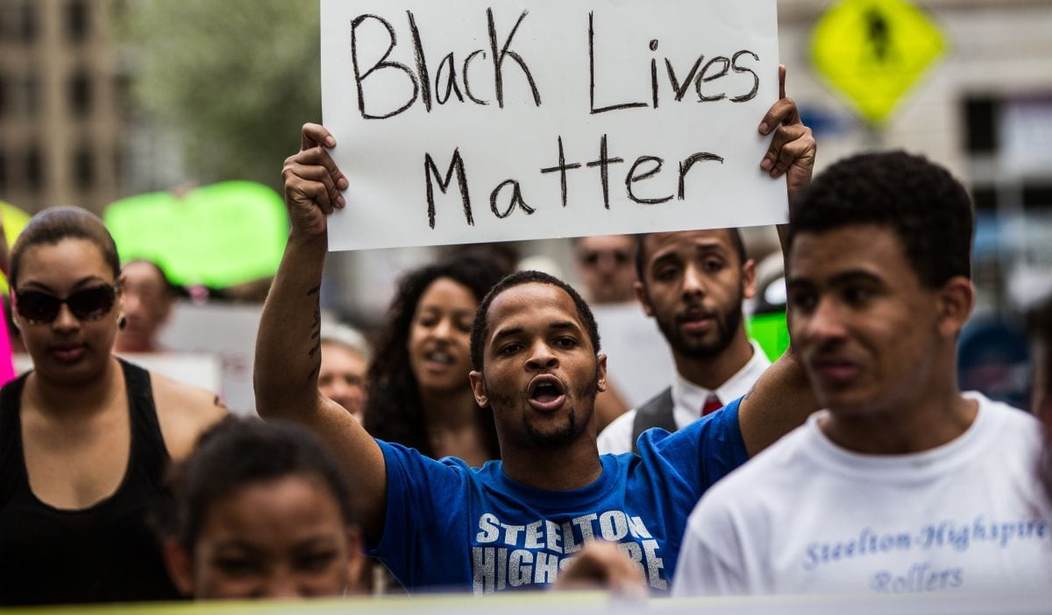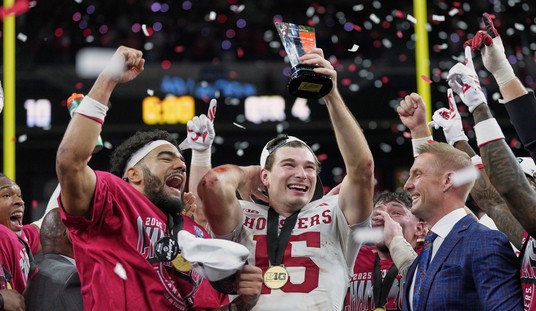In a recent interview published at The Guardian, Boston Celtics star Jaylen Brown gave an in-depth interview about his career, his personal life, and the state of racism in America, something he says is the reason blacks underperform in today’s education system even after years of affirmative action.
Racism definitely exists across America today. Of course it’s changed a lot – and my opportunities are far greater than they would have been 50 years ago. So some people think racism has dissipated or no longer exists. But it’s hidden in more strategic places. You have less people coming to your face and telling you certain things. But [Donald] Trump has made it a lot more acceptable for racists to speak their minds.
It wounds you. But when I got older and went to the University of California [Berkeley] I learnt about a more subtle racism and how it filters across our education system through tracking, hidden curriculums, social stratification and things I had no idea of before. I was really emotional – because one of the most subtle but aggressive ways racism exists is through our education system.
Brown is no doubt reacting to the fact that blacks are still underrepresented in higher education and that the numbers have been stagnant for many years. A New York Times article from last year confirms this:
Even after decades of affirmative action, black and Hispanic students are more underrepresented at the nation’s top colleges and universities than they were 35 years ago. The share of black freshmen at elite schools is virtually unchanged since 1980. Black students are just 6 percent of freshmen but 15 percent of college-age Americans.
According to the article, while white enrollment has steadily dropped at nearly every university, even below 50 percent in some cases, blacks have remained underrepresented with little change. Hispanics have done slightly better, though not by much, and Asians have far exceeded other minority groups, passing whites at some colleges.
Why have blacks not improved despite all the advantages they’ve received? Brown and others believe the cause is hidden racism within the system, starting in elementary school.
In the Times article, the U.S. Department of Education’s Office for Civil Rights affirms this perception: “Elementary and secondary schools with large numbers of black and Hispanic students are less likely to have experienced teachers, advanced courses, high-quality instructional materials and adequate facilities.”
But can this disparity really be blamed on lack of quality education for blacks? Are blacks really not going to college because of socioeconomic reasons or hidden racism that denies them opportunities given to “privileged” white students?
Despite what Brown and civil rights leaders say, not all research supports this conclusion. One preeminent study by John Ogbu, “Black American Students in an Affluent Suburb: A Study of Academic Disengagement,” concluded that the education gap between whites and blacks has more to do with community forces than economic status or racism.
These community forces, which include the ways minorities interpret and respond to school, as well as beliefs and behaviors within the minoirty community regarding education, work against blacks succeeding in the educational system. Ogbu found that this is something that does not affect other minorities in the same way or to the same degree as blacks, if at all.
While all minorities express some level of mistrust in white Americans, blacks are more concerned about how they’re treated by the teachers than they are with the teachers’ ability to provide them with an education that will make them productive citizens. One is purely subjective, the other is objective. As stated by a reviewer of Ogbu’s study at the Harvard Educational Review:
“Ogbu posits that immigrants who bring different cultures, languages, and identities to school are willing and able to adopt white or mainstream school behaviors and language, while non-immigrant minorities, who may perceive their cultures, languages, and identities as oppositional, are less willing and able to adopt white or mainstream school culture and language.”
This means blacks don’t feel like they’re part of the educational environment, which is indeed largely defined by society’s dominant culture (a reality in most developed countries). They feel like they’re ostracized or neglected, not because they aren’t accepted by the education system, but because they perceive it is oppositional to their interests. This, in turn, makes them oppositional to the education system.
This implies that if there’s a bias, it’s on the part of blacks toward the white education system, not whites toward blacks. If the white education were truly riddled with subtle racism, then no other minority would be able to succeed.
But blacks have more trouble because they perceive that the system is against them. Instead of simply using the system as a tool to prepare for higher education and life, as other minorities do, they’re looking for an environment that reflects their image and treats them as they expect to be treated. When those subjective expectations don’t happen, they cry racism.
But why do they feel this way? Some civil rights leaders think it’s because of the legacy of slavery. There is inherent dislike and distrust within the black community toward whites — something, I would add, encouraged and sustained by black activists.
Ogbu found that black students and parents strongly mistrust whites “based on culture transmission, treatment of blacks in the job market,” [which they perceive as racist, whether it is or not], and “collective mistreatment.” In other words, blacks see themselves as oppressed by whites and they carry this resentment and opposition into the schools.
Because black parents taught their children to be careful of teachers (whose ideas, words, and actions could not be trusted), schooling was rarely evaluated in terms of its pragmatic function and more often evaluated in the context of Black-White relations.
Ogbu offers a solution to this particular problem, as summarized by Harvard’s reviewer:
Ogbu argues for a pragmatic trust from black parents and students that would allow these students to overlook race relations and see teachers as knowledge and skills experts and schooling as a means to a future social and economic end. Given that many black parents are sending their children to school with conflicting notions of attaining academic success while keeping a critical eye on the ‘keeper of knowledge’ (i.e., white school personnel), one could argue that it seems quite logical that black students’ cynical attitudes toward schooling based on their minority status in the United States negatively inform their academic performance.
The question is — as the analyst of Ogbu’s study asks — can blacks let go of the past enough to try pragmatic trust? Or is it too much to ask, given their history of mistreatment?
These are the social forces Ogbu found at the heart of low achievement in the black community. Because blacks don’t trust or value education due to its “whiteness,” students flounder. The result of this is devastating to black self-esteem. Black students feel like they’re “intellectually inferior to whites,” and because of this self-doubt, “they often eliminate themselves from higher-level courses.”
“Also, Ogbu found that teachers’ attitudes and beliefs about black students contributed to these feelings of inferiority. Even though teachers did not openly say that black students did not work hard, they implied it in their actions.” These findings, however, “raise the question of whether or not black students’ ‘low-effort syndrome’ is informed by teachers’ perceptions of them or whether teachers’ attitudes toward and beliefs about black students are informed by black students’ display of minimum effort.”
These attitudes on the part of blacks in Ogbu’s research made them not see school as “a plausible means to achieve social and economic mobility.” With this absence, black students looked elsewhere for economic prosperity. They identified “sports, athletics, entertainment, and drug dealing as alternative mechanisms for achieving the ‘American Dream.’ Hence, people most admired by the black students were athletes, sports heroes, and famous entertainers.”
As Ogbu found in earlier studies and cited in this research, this devaluing of education fostered attitudes to oppose any behavior blacks perceived as “acting white.”
These behaviors and attitudes included speaking Standard English and breaking speech rules by speaking Standard English at the wrong times, enrolling in honors and advanced placement classes, acting “smart” in class (e.g., raising their hands to answer questions, always getting the answers right, always completing homework and schoolwork), and hanging out with too many white students who make good grades.
This is why young black students are often ambivalent toward blacks who are “successful in white institutions or white establishments in society” or students who make good grades. Ogbu’s data raised the question, not of how white education can “stop being racist,” but “how the black community and schools can work to minimize this type of ambivalence and dismantle the perception of certain attitudes and behaviors as racialized.” In other words, can blacks stop seeing everything through the lenses of race?
Given this cultural bias within the black community, it is no wonder that Ogbu found that black parents left achievement up to schools and did not actively invest their time and resources into making it happen for their children.
Given this ethos, black parents’ school participation and involvement were dismal among working-class, middle-class, and professional parents. Similarly, parental involvement at home indicated a lack of close supervision of children’s homework, poor coaching on effective time management, lack of shielding from negative peer pressures, and ineffective methods for motivating children to engage in schoolwork. When one considers the community forces simultaneously with system factors, black student academic disengagement becomes a huge dilemma in U.S. education.
When athletes like Brown and others dismiss findings such as these and simply blame the failure and struggles of black students on racism in the white community, they are contributing to the problem that creates a culture of low achievement in the first place — distrust of whites and the American education system.









Join the conversation as a VIP Member